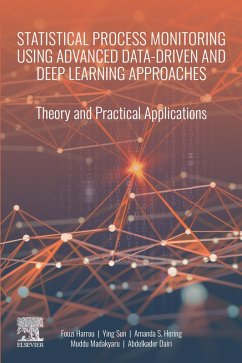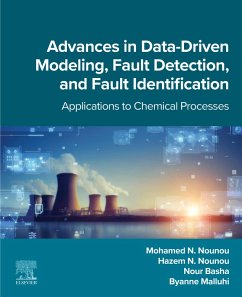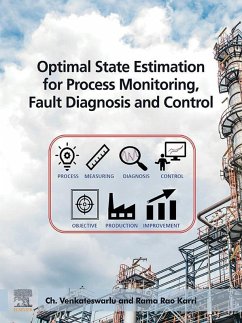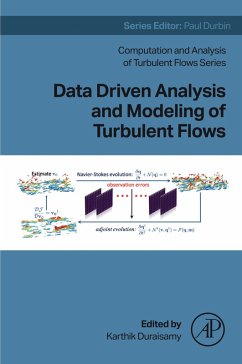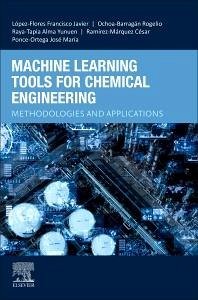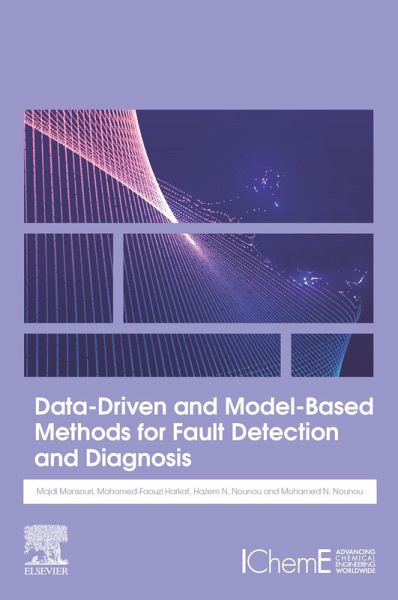
Data-Driven and Model-Based Methods for Fault Detection and Diagnosis (eBook, ePUB)
Versandkostenfrei!
Sofort per Download lieferbar
95,95 €
inkl. MwSt.
Weitere Ausgaben:

PAYBACK Punkte
48 °P sammeln!
Data-Driven and Model-Based Methods for Fault Detection and Diagnosis covers techniques that improve the quality of fault detection and enhance monitoring through chemical and environmental processes. The book provides both the theoretical framework and technical solutions. It starts with a review of relevant literature, proceeds with a detailed description of developed methodologies, and then discusses the results of developed methodologies, and ends with major conclusions reached from the analysis of simulation and experimental studies. The book is an indispensable resource for researchers i...
Data-Driven and Model-Based Methods for Fault Detection and Diagnosis covers techniques that improve the quality of fault detection and enhance monitoring through chemical and environmental processes. The book provides both the theoretical framework and technical solutions. It starts with a review of relevant literature, proceeds with a detailed description of developed methodologies, and then discusses the results of developed methodologies, and ends with major conclusions reached from the analysis of simulation and experimental studies. The book is an indispensable resource for researchers in academia and industry and practitioners working in chemical and environmental engineering to do their work safely. - Outlines latent variable based hypothesis testing fault detection techniques to enhance monitoring processes represented by linear or nonlinear input-space models (such as PCA) or input-output models (such as PLS) - Explains multiscale latent variable based hypothesis testing fault detection techniques using multiscale representation to help deal with uncertainty in the data and minimize its effect on fault detection - Includes interval PCA (IPCA) and interval PLS (IPLS) fault detection methods to enhance the quality of fault detection - Provides model-based detection techniques for the improvement of monitoring processes using state estimation-based fault detection approaches - Demonstrates the effectiveness of the proposed strategies by conducting simulation and experimental studies on synthetic data
Dieser Download kann aus rechtlichen Gründen nur mit Rechnungsadresse in A, B, BG, CY, CZ, D, DK, EW, E, FIN, F, GR, HR, H, IRL, I, LT, L, LR, M, NL, PL, P, R, S, SLO, SK ausgeliefert werden.




